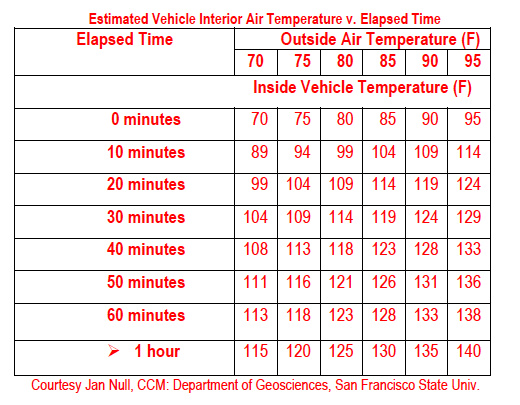
…skilled service…compassionate care
“Together is a wonderful place to be”
Microchip Your Pet
Summer offers more opportunities to enjoy the outdoors and, in spite of your best efforts, accidents do happen. A door can be left open, a pet digs a hole under your fence, or escapes when frightened by a sudden noise. Sure, hanging posters with your pet’s picture and description, noting the loss on social media sites are all options to help you recover your pet. The method with the best chance for seeing your pet again is to be sure your pet is microchipped AND that you register the information with the microchip company. There is no sense in microchipping your pet if the emergency contact information is not available. Please read a few success stories https://microchiphelp.weebly.com/success-stories or https://foundpets.homeagain.com/.
Ask us to scan your pet to be sure your chip is working, then review, and/or update your contact information with the chip provider. Because summer offers more opportunities for your pet to become lost, chip your pet and go out and have fun!
Summer Travel
Family travel beckons especially when kids are out of school during the summer and we love to include our pets. Before you pack the pet bowls, please let us verify that your pet is healthy enough for travel, and if traveling by plane, to obtain necessary documentation for the flight. Talk with us about remedies if your pet is nervous about long car rides or gets travel sick. If you decide against boarding your pet, here are a few tips to make your trip safer and easier for you both. Have a fun and safe trip and be sure to send us lots of photos!
Travel Tips for Pet Health and Safety
- Verify your pet’s microchip status; update the records
- Carry a current picture showing you with your pet
- Carry a copy of current vaccinations, licenses, and insurance
- Use a safety harness or secured carrier if traveling by car
- Carry your pet’s usual food to prevent tummy upset
- Always keep your pet on a leash when outside
- Never leave your pet alone in a closed car
Heat Issues for Pets
Another heat risk to dogs is running on hot asphalt. Did you know that when the air temperature is 87 degrees F, the asphalt can reach 140 degrees F? That’s hot enough to fry an egg. It can cause burns and permanent damage after just one minute of contact. Hot sidewalks can also reflect onto dogs’ bodies, increasing the risk of heatstroke. If possible, walk in the early morning or evening.
Also be wary of overheating in cars. Dogs and cats don’t sweat, rather they pant to help cool themselves. If the temperature rises inside the car, they have no way to cool themselves and will overheat rapidly. Look for the following signs to determine if your pet is suffering from heat stroke: heavy panting, glazed eyes, rapid pulse, unsteadiness on his feet, vomiting, or a deep red or purple tongue. If you see any of these signs, move to a cooler area and:
- Gradually lower your dog’s body temperature by applying cool (not cold) water all over his body or soaking him in a cool bath.
- Place cool, wet towels over the back of his neck, in his armpits, and in his groin area. You may also wet his ear flaps and paws with cool water. Direct a fan on the wet areas to speed evaporative cooling.
- Offer fresh, cool water in small amounts if your dog is alert and wants to drink. Do not force your dog to drink.
- Get your pet to the veterinarian as soon as you can; it could save his life.
Healthy Frozen Pet Treats
Remember, don’t feed your pet any product containing xylitol, like gum and even ice cream. Xylitol is in a lot more foods and always read the labels; be careful because it is not always listed in the ingredient list. Instead, to satisfy your pet’s cool desire, consider freezing ice cube trays containing chicken broth, sliced bananas, or watermelon chunks. Then offer these to your pet instead of the ice cream. Never feed more than 10% of your pet’s normal meal. Keep cool!

Blue / Green Algae Poison
Swimming in lakes/streams is great fun for many dogs and people. Be particularly vigilant for the possibility that your pet may become exposed to blue-green algae. Cyanobacterium (blue – green algae) are microscopic bacteria that can produce a toxin in the summer. Ingestion by drinking or swimming of even the smallest amount can be fatal. Some signs to watch for if your pet has ingested the blue-green algae are: vomiting, diarrhea, disorientation, seizures, difficulty breathing and even death. If you suspect your pet may have been poisoned by a blue-green algae bloom, please seek emergency treatment as quickly as possible. It is best to avoid areas of toxin exposure to you and your pet.
The pet poison helpline provided this photo to show an example of the blue-green algae problem. For detailed information and advice about the dangers of blue-green algae blooms to your pet, please go to: https://www.petpoisonhelpline.com/poison/blue-green-algae/
National Pet Preparedness Month
June is National Pet Preparedness Month and given the severe weather and firestorms we recently experienced, family preparedness is a must and that preparedness must include your pets. For great tips and information for pet preparedness, please visit: https://www.ready.gov/pet-toolkit.
Fun Facts!
- Cats might have an extra eyelid or “haw”, but they don’t have any eyelashes.
- Turkeys have 5,000 to 6,000 feathers.
- The name of the dog on the Cracker Jacks box is Bingo. The Taco Bell Chihuahua is a rescued dog named Gidget.
Father’s Day – June 16, 2019
Be sure to thank the influential father figures in your life.



